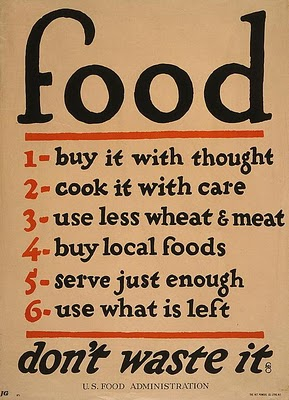Food Rule: Born From Love?

by lu_lu
Here it is folks, I’ve come up with a simple rule to help you choose foods that will keep you on the path of health.
As a Dietitian, I am constantly asked ” What should I do to lose weight?”. I’d always relay to them the simple message from author Michael Pollen “Eat food, not too much, mostly plants.” Its a practical statement ringing with truth and clarity and shifts the focus on health instead of the guilt that arises from weight issues. If only I’d thought of it myself.
I figured it’s about time for a Dietitian to come up with a statement of simplicity for our community. We can’t let the journalists take over all our authority. I’m here today to reveal my food mantra and explain the meaning behind it. Here it is:
If you think about where your food comes from, there are two general paths. Either it comes from loving situations or non-loving situations. And there are two ways in which food is consumed – loving and non-loving.
Non-Loving Situations
Non-loving situations lack care for the environment and care for the consumer. These are the factory farms, the dirty feed lots, the crowded dark hen house, the fast food restaurants , and the chemically showered fields. These are the animals injected with growth hormones and antibiotics to the point they can no longer stand on two feet. The plants and animals that don’t receive the love and respect that human interactions demand.
And the consumer loses.
Our health declines and disease becomes more common even in the midst of scientific breakthroughs. We might save a couple bucks at the grocery store, but we end up spending it on material items that clog our life and mask happiness. The burden on our health and the health of the environment is shifted from producer to the consumer or government.
It’s also possible that we are not consuming our food in a loving manner. To me, love is about pleasure and acting with care. It’s a feeling thats hard to describe and easy to debate. One thing I do know: Scarfing down a plate of food in less than five minutes is not love. Making no attempt at tasting the individual ingredients is not love. And stuffing yourself until you feel sick is not a loving situation.
Loving Situations
Many of us choose to nourish our bodies with food that is born of love. Vegetables fertilized with healthy compost and handled with care come from love. Animals given room to run and fresh air to breath are loved. Cows and pigs raised primarily on grass and allowed to naturally come to maturity are living a life of love. Chefs who prepare our food with pride and attention are dishing out the love – and the really great ones always use the freshest local foods when possible.
Wild antelopes running through the prairie breeze feel the love. Farmers that return waste to the very soil the animals graze on instead of letting it pool and leach into our precious water supplies are showing love for the environment. And growing our own food is the ultimate gift of love – its like getting to raise quiet, happy children year after year.
And the consumer wins.
Eating food from our garden is a magical, appreciative experience. Meat from pastured or wild animals is lower in total fats (especially the saturated kind), lower in calories, and two to four times higher in omega-3 fatty acids. It’s higher in vitamins and minerals, and bigger on flavor.
Pastured meats are more expensive, and its a good thing. Farmer’s undertake preventative measures for the health of the environment and our government’s liability is reduced. They understand that we want to pay more for our meat because we know it’s healthier and that our investment will pay dividends down the road in the form of reduced medical expenses.
When we choose to only eat meats raised with love, we afford less and will gradually shift our dietary reliance to heart healthy fruits, vegetables, and whole-grains. These fruits and vegetables should be free of the chemicals that can negatively affect our reproductive systems and brain function. This will probably result in less calories consumed and a gradual return to a healthy, maintainable weight.
We should be consuming our food with more love.
Take some time to consider where it came from as you sit at the dinner table. Taste the different flavor sensations – the bitter, sour, and sweet. Try to decode the individual ingredients and notice how they play off each other. Notice how the acid from our wine perfectly cuts through the sweetness of our roasted carrots. Put down the fork for a minute and engage in conversation with your friends and family. Appreciate how it nourishes our bodies. Smell your food! Chew your food! Love your food!
Find food born of love by visiting your local farmer’s market or joining a CSA. Find a local farmer to supply your meat, and get to know her. Best of all, start a garden and raise some chickens.
It’s our choice what and how we eat. I choose LOVE.













